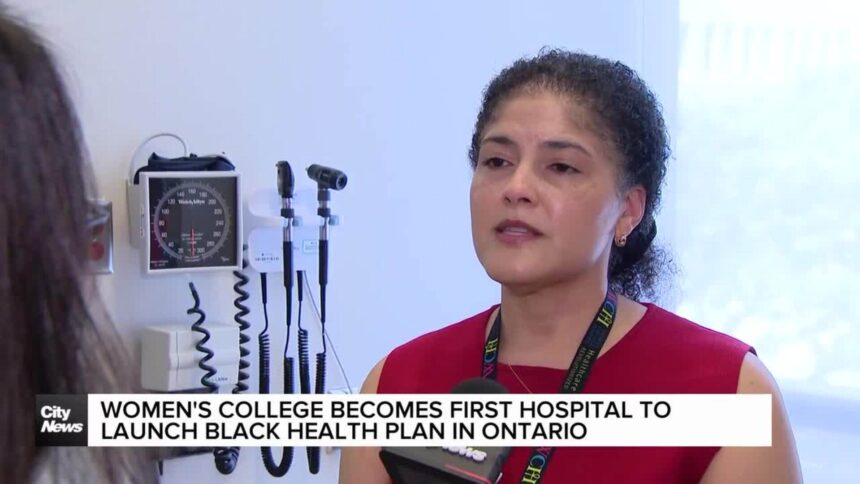Toronto’s healthcare landscape is witnessing a transformative development as St. Michael’s Hospital becomes the first in Ontario to launch a dedicated Black Health Plan, addressing long-standing disparities in medical treatment and outcomes for Black communities.
The groundbreaking initiative, unveiled yesterday at a ceremony attended by healthcare leaders and community advocates, aims to tackle systemic barriers that have historically prevented equitable healthcare access for Black Torontonians.
“This isn’t just about creating another program—it’s about fundamentally reimagining how healthcare responds to the specific needs of communities that have been marginalized within our systems,” explained Dr. Nadine Thompson, the plan’s clinical director, during the launch event.
The comprehensive strategy comes after years of community consultation and research showing troubling health disparities. Black Torontonians face higher rates of chronic conditions including diabetes, hypertension, and certain cancers, while simultaneously experiencing barriers to accessing timely, culturally responsive care.
As someone who’s covered Toronto’s healthcare evolution for over a decade, I’ve observed numerous equity initiatives come and go, but this program stands apart in both scope and community involvement. The plan incorporates direct input from over 300 Black community members who participated in focus groups and advisory committees over an 18-month development period.
Makeda Johnson, a community health advocate who participated in the planning process, shared her perspective: “We’ve been talking about these issues for generations. The difference now is that our voices aren’t just being heard—they’re actually shaping the solutions.”
The initiative includes several innovative components that could serve as a model for other institutions across Canada:
– Cultural competency training for all healthcare providers
– Recruitment targets to increase Black representation among medical staff
– Community health ambassadors embedded in predominantly Black neighborhoods
– Specialized clinical services addressing conditions disproportionately affecting Black populations
– Mental health supports acknowledging the impacts of racism and discrimination
Dr. Aisha Walker from the Black Physicians’ Association of Ontario called the initiative “a crucial first step” while emphasizing that “systemic change requires sustained commitment beyond initial announcements.”
Financial backing for the program comes from a combination of hospital foundation funding, provincial grants, and a significant contribution from the Catherine and Maxwell Henderson Foundation, which has committed $3.5 million over five years.
Health equity experts note that the initiative arrives at a critical moment. According to recent data from Toronto Public Health, the pandemic exposed and deepened existing health inequities, with COVID-19 infection rates up to four times higher in predominantly Black neighborhoods during peak periods.
“We’ve moved past simply documenting disparities to actually implementing solutions,” noted Toronto City Councillor Denise Williams, who represents a district with a significant Black population. “This is about healthcare justice, not charity.”
The plan hasn’t been without controversy. Some critics have questioned whether targeted approaches might inadvertently reinforce divisions, while others argue that broader systemic reforms would better serve all marginalized communities.
Dr. Thompson addressed these concerns directly: “This isn’t about special treatment—it’s about recognizing that universal approaches have failed to create universal outcomes. Different communities need different pathways to reach the same destination: good health.”
Walking through St. Michael’s yesterday, I noticed the tangible excitement among staff and community members alike. The hospital has already begun implementing visual changes, with informational materials reflecting diverse faces and stories, multilingual signage, and artwork from local Black artists adorning previously clinical spaces.
Implementation will roll out in phases over the next two years, with early components focusing on maternal and child health, chronic disease management, and preventative care. Community outreach programs will begin next month in Regent Park, Jane-Finch, and Scarborough neighborhoods.
For many Black Torontonians who have experienced healthcare as an unwelcoming space, the initiative represents more than just new programs—it signals recognition of their experiences and needs.
As Toronto continues to evolve as one of North America’s most diverse cities, initiatives like this highlight both our challenges and our capacity for innovation in creating systems that truly serve everyone. The success of this program could potentially influence healthcare approaches not just in Ontario, but across Canada.
The true measure of this initiative’s impact will come not from yesterday’s announcements, but from the health outcomes and community trust it builds in the years ahead.







